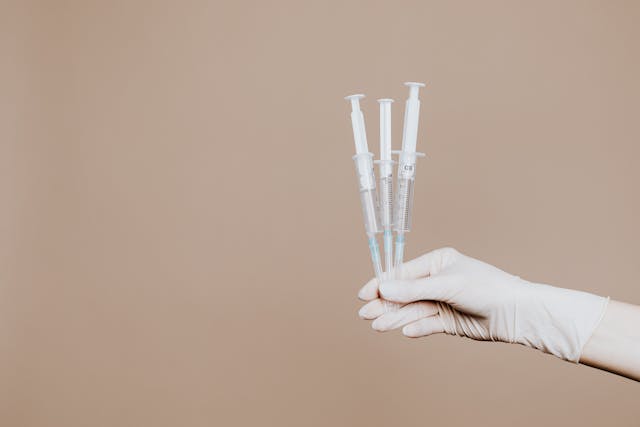Preventative Health Measures: Vaccinations and Screenings
Taking proactive steps to maintain your health can be one of the best investments in your well-being. Preventative health measures, including vaccinations and screenings, play a vital role in catching potential issues early and protecting against preventable diseases. Here’s a comprehensive guide to understanding the importance of these measures and how they can keep you healthy.

Why Preventative Health Matters
Preventative health focuses on reducing the risk of illness before it occurs. It involves a combination of:
-
Vaccinations to build immunity against infectious diseases.
-
Screenings to detect diseases or risk factors in their early stages.
These interventions can help you avoid costly treatments, reduce complications, and increase the likelihood of better outcomes.
The Role of Vaccinations
Vaccines are one of the most effective tools for preventing diseases. By exposing your immune system to a harmless part of a pathogen, vaccines train your body to recognize and fight off infections.
Essential Vaccines for All Ages
-
Childhood Vaccinations: Protect children against diseases like measles, polio, whooping cough, and chickenpox. Key vaccines include:
-
MMR (measles, mumps, rubella)
-
DTaP (diphtheria, tetanus, pertussis)
-
Polio vaccine
-
Varicella (chickenpox)
-
Adult Vaccinations: Immunizations don’t stop in childhood. Adults benefit from boosters and new vaccines to maintain immunity, such as:
-
Flu shots (annual)
-
Tdap booster (every 10 years)
-
Shingles vaccine (for those over 50)
-
Pneumococcal vaccines (for older adults and high-risk groups)
-
Travel Vaccinations: Depending on your destination, additional vaccines like yellow fever or typhoid may be recommended.
Myths About Vaccines
Misinformation about vaccines can lead to unnecessary fear. Vaccines are thoroughly tested for safety and effectiveness, and side effects are typically mild. Staying informed through reliable sources like the CDC or WHO is crucial.
The Importance of Health Screenings
Screenings are medical tests that detect diseases early, often before symptoms appear. Early detection can lead to more effective treatment and better outcomes.
Key Screenings to Consider
-
Blood Pressure and Cholesterol Checks: Monitor heart health and reduce the risk of heart disease.
-
Diabetes Screening: Especially important if you have risk factors like obesity or a family history.
-
Cancer Screenings: Regular checks can identify cancers early when they’re most treatable:
-
Mammograms (breast cancer)
-
Pap smears and HPV tests (cervical cancer)
-
Colonoscopies (colorectal cancer)
-
Skin checks (melanoma)
-
Bone Density Tests: For older adults, especially women, to prevent or manage osteoporosis.
-
Eye and Hearing Exams: Regular exams help maintain vision and hearing as you age.
Personalized Screening Schedules
Screening recommendations vary based on age, gender, medical history, and risk factors. Work with your healthcare provider to develop a personalized schedule.
Combining Vaccinations and Screenings for Holistic Health
Both vaccinations and screenings work best when integrated into a comprehensive healthcare plan. Regular check-ups with your primary care provider can help:
-
Keep your vaccinations up to date.
-
Identify when screenings are due.
-
Address any emerging health concerns promptly.
Overcoming Barriers to Preventative Care
Despite the benefits, some people avoid preventative measures due to:
-
Cost Concerns: Many vaccinations and screenings are covered by health insurance or public health programs. Check your eligibility for free or low-cost options.
-
Fear or Anxiety: Discuss concerns with your doctor, who can provide reassurance and information about what to expect.
-
Lack of Awareness: Staying informed through trusted healthcare providers can help you prioritize preventative care.

The Long-Term Impact of Preventative Health
Investing in vaccinations and screenings pays off in the long run by:
-
Reducing the burden of disease on individuals and communities.
-
Enhancing quality of life and longevity.
-
Lowering healthcare costs by avoiding advanced treatments for preventable conditions.
Preventative health measures also contribute to public health by reducing the spread of infectious diseases, protecting vulnerable populations, and minimizing outbreaks.
Taking the Next Steps
Ready to prioritize your health? Start by:
-
Scheduling an Annual Check-Up: Use this time to discuss your vaccination and screening needs with your doctor.
-
Maintaining Records: Keep a record of your vaccinations and screening results to track your health journey.
-
Encouraging Loved Ones: Share the importance of preventative health with friends and family.
Preventative care is about empowering yourself to stay healthy and take charge of your well-being. By staying proactive, you can enjoy a healthier, more vibrant life for years to come.












